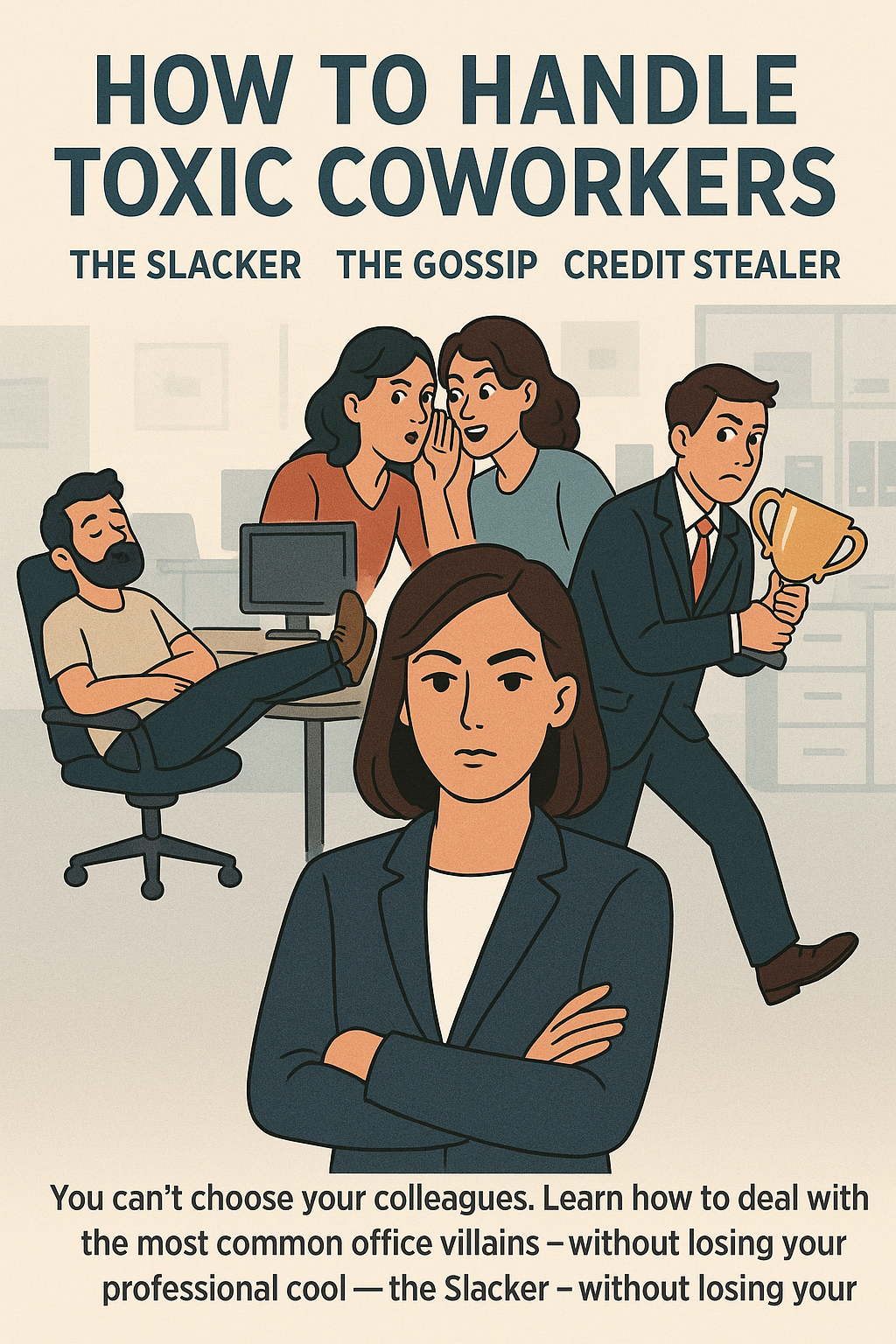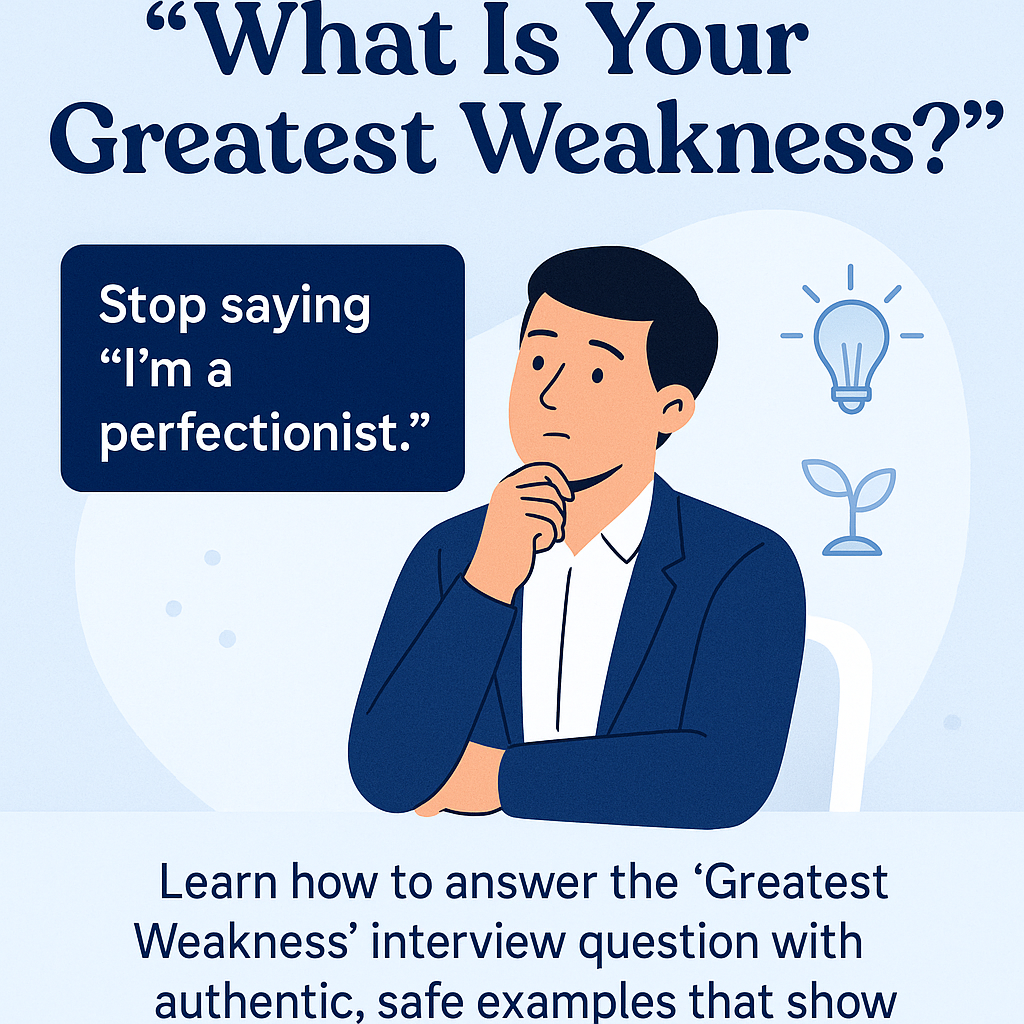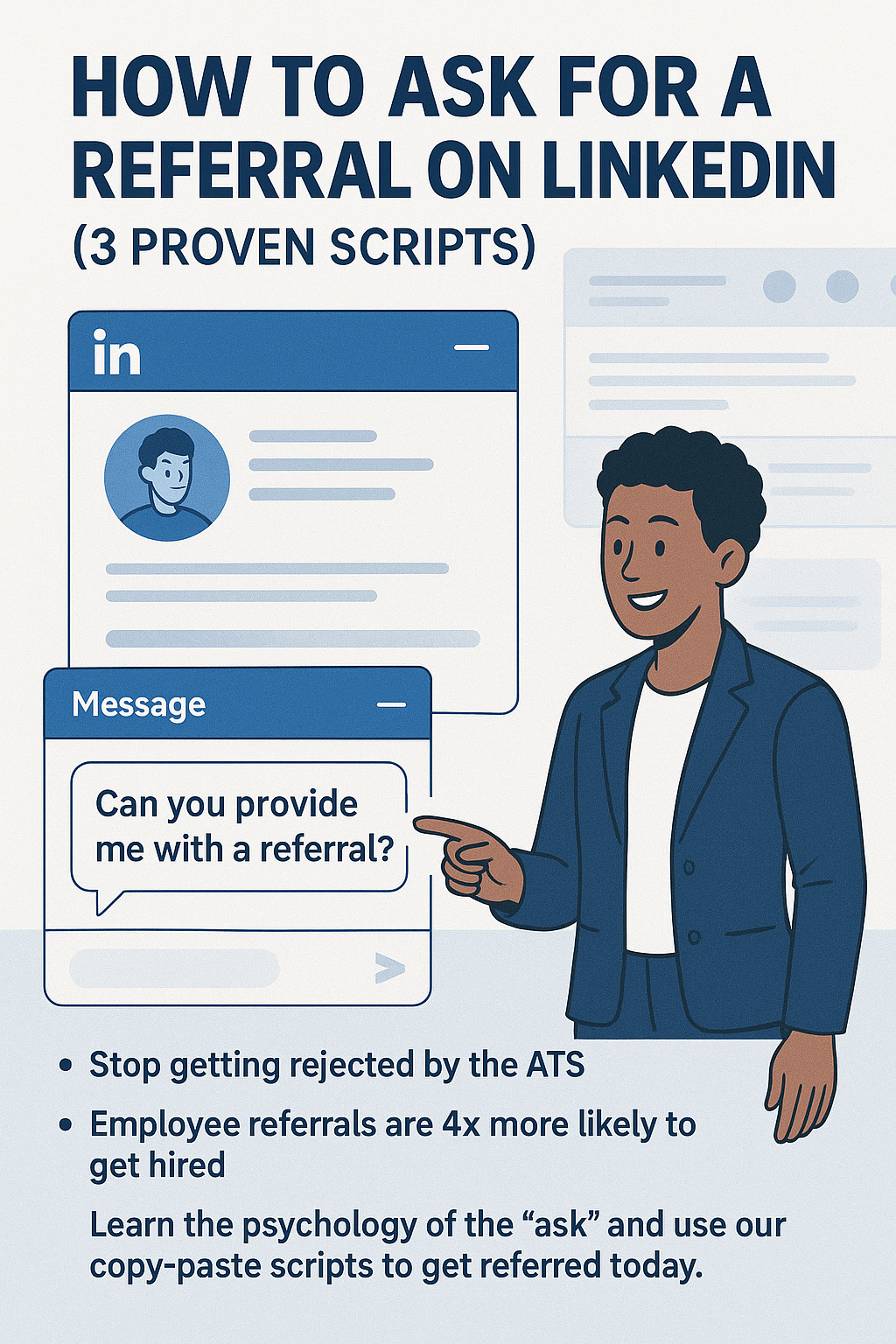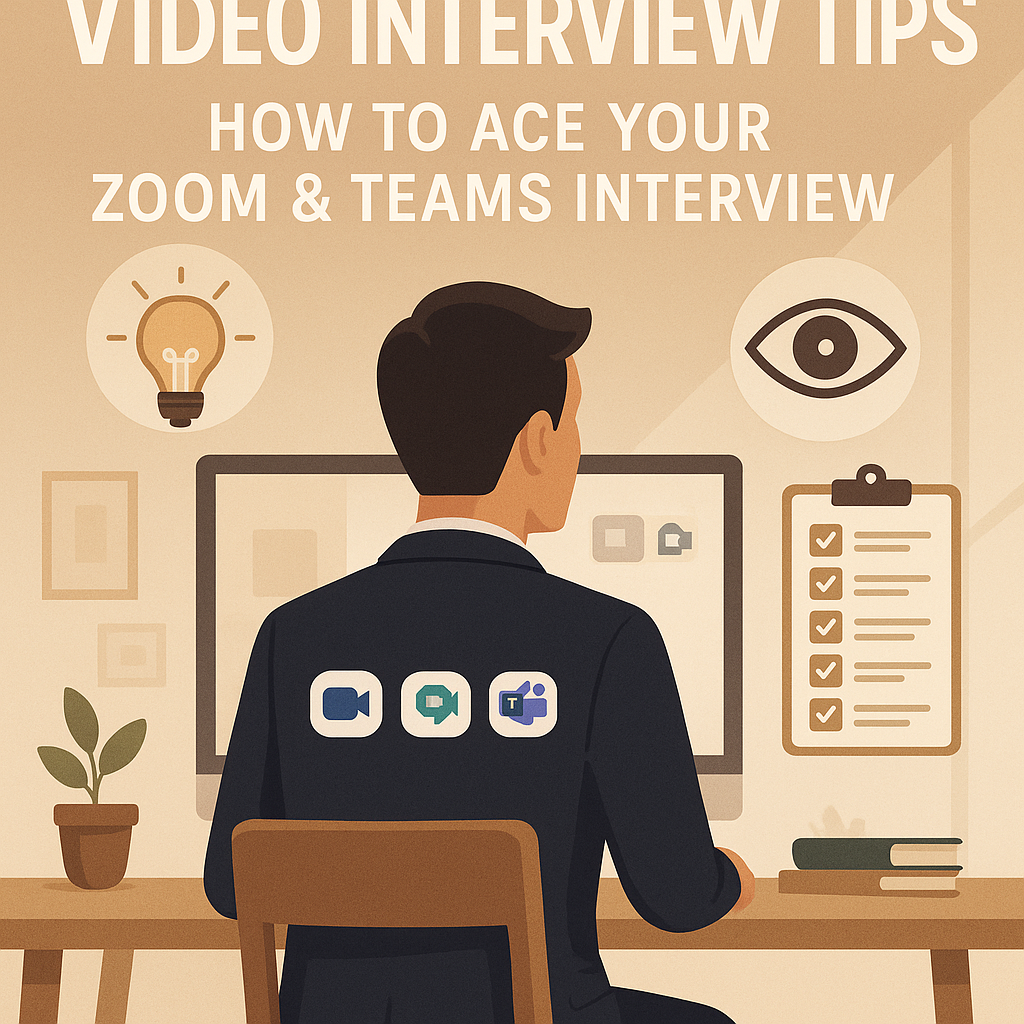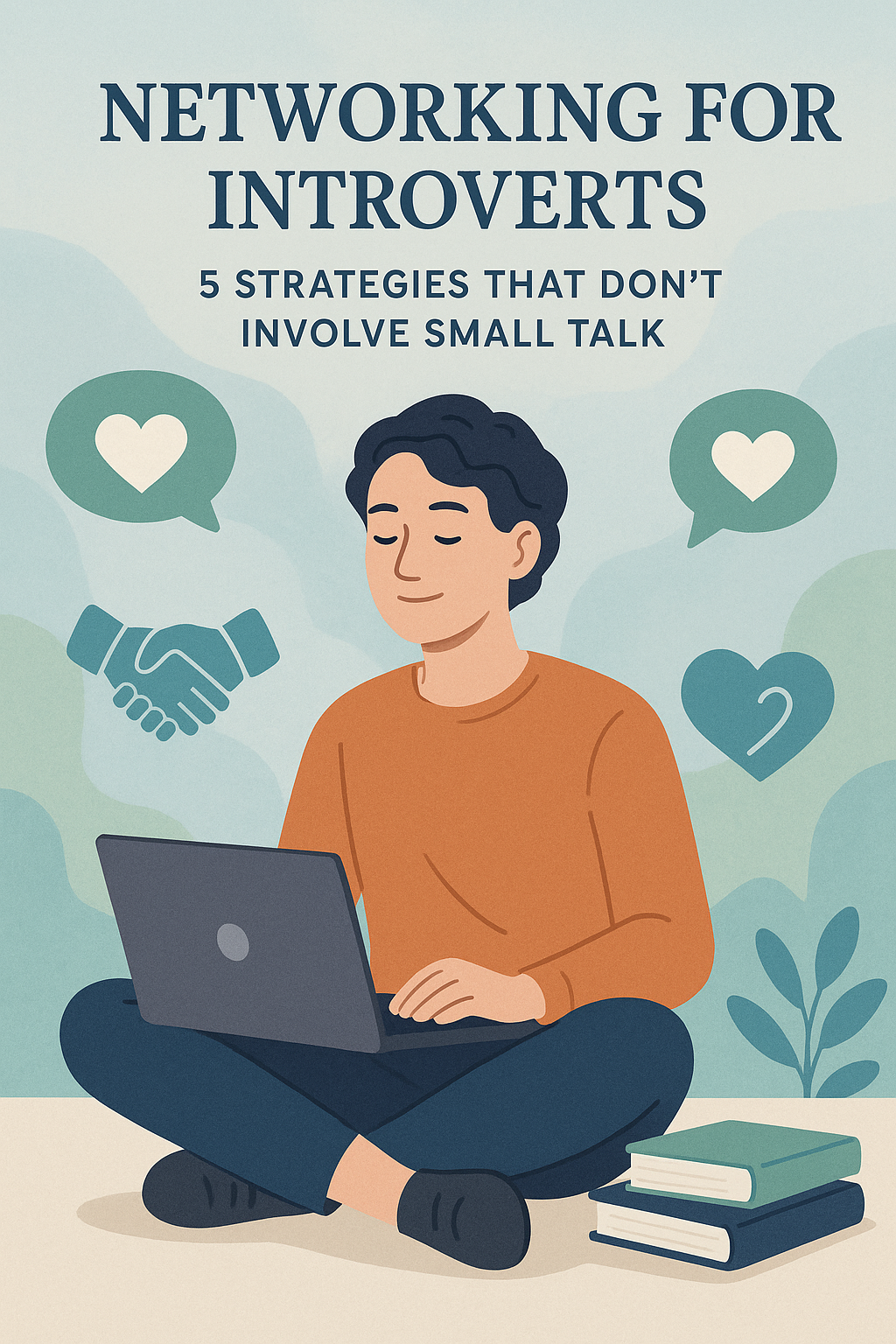
Networking for Introverts: 5 Strategies That Don't Involve Small Talk
For many professionals, the word "networking" conjures up a very specific, and often dreaded, image: a crowded, noisy room filled with strangers in suits, all trying to talk over each other. It’s a world of forced smiles, superficial small talk, and the transactional exchange of business cards. The goal, it seems, is to "work the room," to meet as many people as possible, and to project an aura of effortless, extroverted charm. For an introvert, this entire scenario can feel less like an opportunity and more like a special kind of corporate torture.
Introverts thrive on deep, meaningful connection. They draw energy from thoughtful, one-on-one conversations, not from shouting over a crowd. The traditional model of networking feels unnatural, exhausting, and fundamentally inauthentic. This leads many talented, insightful introverts to conclude that networking simply isn’t for them. They avoid it at all costs, missing out on the incredible career opportunities, mentorship, and collaborations that a strong professional network can provide.
But what if this entire image of networking is wrong? What if the goal isn't to collect the most business cards, but to build the most genuine relationships? What if the skills that make introverts feel out of place in a crowded room—their ability to listen deeply, to think before they speak, and to form strong, lasting bonds—are actually their greatest networking superpowers?
The truth is, you don’t have to become an extrovert to build a powerful professional network. You just have to change the rules of the game. This guide is for every introvert who has ever felt that networking wasn't for them. We will unveil five powerful, practical strategies that lean into your natural strengths, allowing you to build a robust network without ever having to engage in painful, superficial small talk.
Redefining Networking: The Introvert's Strategic Advantage
The first and most crucial step is to completely redefine what networking means. Throw away the image of the loud, crowded room. The real goal of networking is not about quantity; it’s about quality. It’s about building a small, trusted circle of professional allies who respect your work, value your insights, and are willing to advocate for you.
Extroverts may be skilled at casting a wide net, but introverts are masters of deep-sea fishing. Their natural inclination to listen more than they talk, to ask thoughtful questions, and to remember the details of a conversation allows them to build rapport and trust much more quickly in the right setting.
So, the new definition of networking is this: a series of meaningful, one-on-one conversations designed to learn from others and build genuine, mutually beneficial relationships over time. This isn't a game of charisma; it's a long-term strategy of connection and value exchange. And that is a game an introvert is perfectly wired to win. With this new definition in mind, let's explore the strategies that make it a reality.
Strategy 1: Master the One-on-One Coffee Chat
The one-on-one meeting is the introvert's home turf. It eliminates the noise, the crowds, and the pressure to perform for an audience. It’s a controlled environment where you can have the kind of deep, focused conversation you excel at. The "informational interview" or "coffee chat" (which can be digital or in-person) is your most powerful tool.
The key is to approach it correctly. Don't ask for a job; ask for advice. People are far more willing to share their story and expertise than they are to consider a job application from a stranger.
Your process should be strategic. First, identify people in roles or companies that interest you. A great place to start is by researching companies on JobPe to find organizations that align with your values, then using LinkedIn to find interesting people within them. Once you've identified someone, send a concise, respectful, and specific request.
Here's a simple template:
"Dear [Name], My name is [Your Name], and I'm a [Your Role] deeply interested in [Their Field]. I've been following your work on [Specific Project or Post] and was incredibly impressed by your insights on [Topic]. I know you're very busy, but I was wondering if you might have 15-20 minutes in the coming weeks for a brief virtual coffee chat. I'm hoping to learn more about your career journey and would greatly value your perspective. Thank you for your consideration."
This approach works because it's flattering, specific, and respectful of their time. During the chat itself, your job is to listen and ask thoughtful questions. Your natural curiosity is your greatest asset here.
Strategy 2: Leverage the Power of Written Communication
Before you ever have to speak to someone, you can build a connection through the written word—another area where introverts naturally shine. Thoughtful, well-crafted writing allows you to formulate your ideas without the pressure of an on-the-spot conversation.
Start by engaging on professional platforms like LinkedIn. Instead of just "liking" a post from someone you admire, leave a thoughtful, insightful comment that adds to the conversation. Ask a question, offer a different perspective, or share a related resource. A well-written comment stands out and makes a far stronger impression than a simple "Great post!"
Your connection requests should also be personalized. The default, empty request is lazy. A simple note explaining why you want to connect can make all the difference. For example: "Hi [Name], I recently read your article on the future of AI in marketing and found your perspective on data privacy fascinating. I'm also passionate about this space and would love to connect and follow your work."
This thoughtful, low-pressure approach allows you to build a network and establish your expertise from the comfort of your own keyboard, laying the groundwork for deeper connections down the line.
Strategy 3: Adopt the "Seeker of Knowledge" Mindset
One of the biggest mental blocks for introverts is the feeling that networking is transactional and self-serving. It can feel like you're "using" people to get ahead. To overcome this, shift your entire mindset from "What can I get?" to "What can I learn?"
Frame your networking efforts as a personal learning journey. Your goal is to gather intelligence, understand new perspectives, and become smarter about your industry. When you approach someone with genuine curiosity about their work, their challenges, and their insights, the entire interaction changes. The pressure to "perform" or "sell yourself" disappears, replaced by a genuine desire to understand.
This mindset makes your questions more authentic and your listening more active. People love to talk about their work and share their expertise. By positioning yourself as an eager student, you make them the expert and create a much more comfortable and flattering dynamic. This approach is not only effective for networking but also fuels your personal and professional growth. Committing to continuous improvement on platforms like Allrounder.ai to learn new skills can provide you with a constant stream of new topics and questions to discuss with your network.
Strategy 4: Offer Value First, Without Expectation
The strongest professional relationships are built on reciprocity. But the key is to be the first one to offer value, without any expectation of an immediate return. Introverts are often keen observers, and you can use this strength to find small but meaningful ways to help others.
What does "offering value" look like? * Be a Connector: If you meet someone who is looking for a graphic designer and you know a great one, make the introduction. * Be a Curator: If you read an article or find a resource that you know would be highly relevant to someone in your network, send it to them with a short note: "Saw this and thought of our conversation about [Topic]. Thought you might find it interesting." * Be a Sounding Board: If a connection posts about a problem they're facing, offer a thoughtful perspective or a supportive comment.
These small, generous acts build a reputation as someone who is helpful and well-connected. Over time, this creates a powerful foundation of goodwill. When the time comes that you need help or advice, people will be far more willing—and even eager—to reciprocate.
Strategy 5: Attend Events with a Purpose, Not Pressure
While the other strategies are designed to avoid large events, there will be times when attending a conference or industry meetup is unavoidable or highly beneficial. The key is to change your goal for the event.
Instead of feeling the immense pressure to "work the room" and meet everyone, give yourself a new, much more manageable mission: "My goal is to have one or two meaningful conversations." That's it. If you accomplish that, the event is a success. This reframes the entire experience from a terrifying social gauntlet into a simple, targeted objective.
Here are a few tips to make it easier: * Arrive Early: It's much less intimidating to enter a room with five people than one with fifty. It's easier to strike up a conversation in a calmer environment. * Look for Other Introverts: Scan the room for other people standing alone or on the periphery. They are likely feeling just as awkward as you are and will probably be relieved if you initiate a conversation. * Have Go-To Questions Ready: Prepare a few open-ended questions that go beyond small talk. Instead of "What do you do?", try "What's the most interesting project you're working on right now?" or "What's the biggest challenge you're seeing in our industry at the moment?" Many of the skills used to answer common interview questions can be adapted to spark engaging networking conversations.
Conclusion: Your Introversion is Your Superpower
The world of professional networking is not reserved for the loudest person in the room. It's a field that can, and should, be dominated by those who are the most thoughtful, genuine, and strategic in their approach. Your introversion—your ability to listen, to think deeply, and to form real connections—is not a weakness to be overcome. It is your single greatest networking advantage.
Stop trying to play the extrovert's game. Start playing your own. Focus on quality over quantity. Leverage the power of the written word. Be a seeker of knowledge. Offer value generously. And redefine success on your own terms. By embracing these strategies, you can build a powerful, authentic, and lasting professional network that will support you throughout your entire career.
For more tools and resources to help you build the career you deserve, visit us at https'//jobpe.com.

Creative Content Writer


